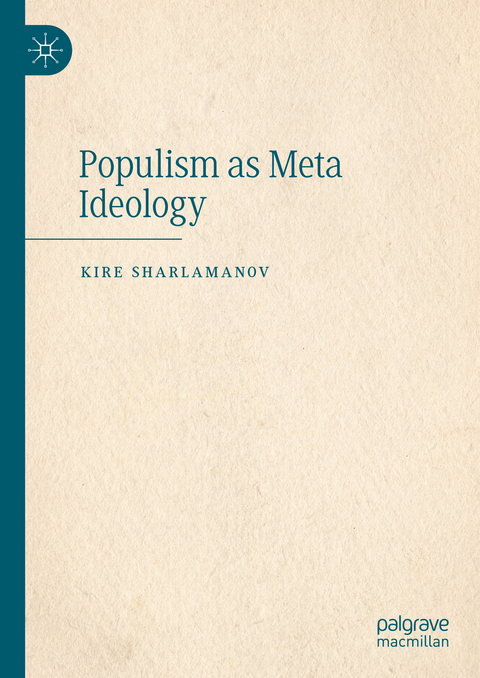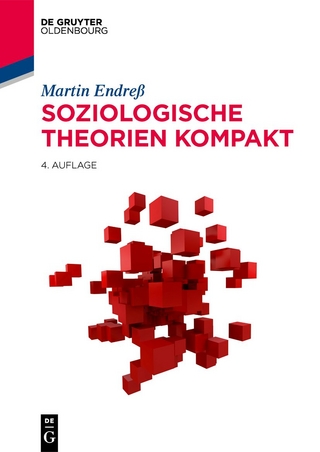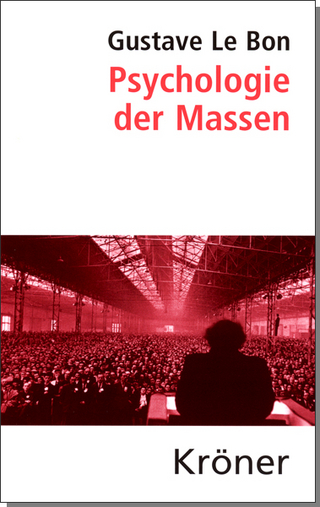
Populism as Meta Ideology
Springer International Publishing (Verlag)
978-3-031-03933-1 (ISBN)
lt;b>Kire Sharlamanov is Full Professor of Sociology at the International Balkan University, Skopje, Republic of North Macedonia. His specialty is in the field of political sociology. He is the author of several books and articles in the field of sociology. Kire Sharlamanov is currently the president of the Association of Sociologists of Macedonia.
1. Overview of the Characteristics of Populism.- 1.1. Introduction.- 1.2. The Organizational Structure of the Book.- 1.3. The Historical Beginnings of Populism.- 1.4. The Meaning of the Term Populism.- 1.5. Evolution of the Study of Populism.- 1.6. The Social Structure of the Populist Electorate.- 1.7. Populism and Elitism.- 1.8. Populism and Pluralism.- 1.9. Populism and Clientelism.- References.- 2. Approaches to the Studying of Populism.- 2.1. Introduction.- 2.2. Comparative Analysis of Approaches to the Study of Populism.- 2.3. The Discursive Approach.- 2.4. Organizational Approach.- 2.5. The Cultural (Performative) Approach.- 2.6. The Ideational Approach.- 2.7. Comparison of Populism with Other Ideologies (Populism as a Meta Ideology).- 2.8. Final Observations on the Approaches to the Study of Populism.- References.- 3. The Key Concepts of Populism.- 3.1. Sovereignty.- 3.2. The People.- 3.3. The Elite.- 3.4. General Will.- 3.5. Demagogy.- 3.6. The Reasons for theGrowth of Populism.- References.- 4. Modernization.- 4.1. Introduction.- 4.2. Agrarian Versus New Populism.- 4.3. Emancipatory Movements, Modernization, and New Populism.- 4.4. Cultural Dualism and Populism.- 4.5. The Second (Reflective) Modernity and the New Populism.- 4.6. Populist Identity in the Second Modernity.- References.- 5. Globalization.- 5.1. Introduction.- 5.2. The Global Political Economy.- 5.2.1. Free Trade and Populism.- 5.2.2. Economic Globalization and the Growth of Inequality.- 5.2.3. The Decline of the Welfare State.- 5.2.4. Economic Uncertainty.- 5.2.5. Assessing the Significance of Economic Uncertainty for the Growth of Populism.- 5.3. Globalization and the Erosion of Nation-States.- 5.3.1. Euroskepticizam.- 5.3.2. Immigration and Cultural Anxiety.- 5.3.3. Nativism.- 5.3.4. Cultural Backlash and Immigration.- References.- 6. The Crisis of Political Parties.- 6.1. Introduction.- 6.2. The Decline in Turnout and Populism.- 6.3. The Crisis of Representativeness and Populism as an Alternative.- 6.4. Changing Values.- 6.5. Distrust in the Political System.- 6.6. Non-functionality of Mainstream Parties.- 6.7. Corruption.- 6.8. Globalization and Capacity Constraints of Mainstream Parties.- 6.9. Positioning in the Political Spectrum and Populism.- References.- 7. Transformation of the Public Sphere.- 7.1. Introduction.- 7.2. Medialization.- 7.3. Tabloids and Populism.- 7.4. The Media Promotion of Populism.- 7.5. New Media and Populism.- References.- 8. Populism and Liberal Democracy.- 8.1. Introduction.- 8.2. The populists in Power.- References.
| Erscheinungsdatum | 14.05.2022 |
|---|---|
| Zusatzinfo | IX, 233 p. |
| Verlagsort | Cham |
| Sprache | englisch |
| Maße | 148 x 210 mm |
| Gewicht | 433 g |
| Themenwelt | Sozialwissenschaften ► Politik / Verwaltung |
| Sozialwissenschaften ► Soziologie ► Allgemeine Soziologie | |
| Sozialwissenschaften ► Soziologie ► Spezielle Soziologien | |
| Schlagworte | Globalization • illiberal democracy • Meta Ideology • Modernization • Political parties • Political Sociology • Populism • Public sphere |
| ISBN-10 | 3-031-03933-5 / 3031039335 |
| ISBN-13 | 978-3-031-03933-1 / 9783031039331 |
| Zustand | Neuware |
| Haben Sie eine Frage zum Produkt? |
aus dem Bereich


